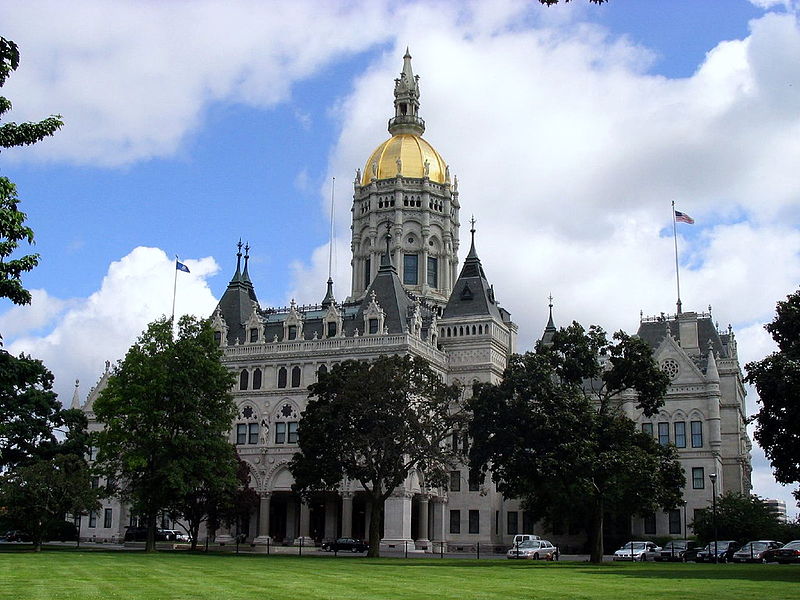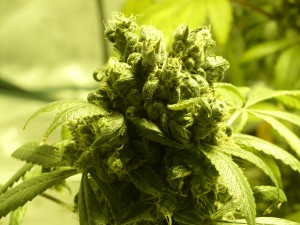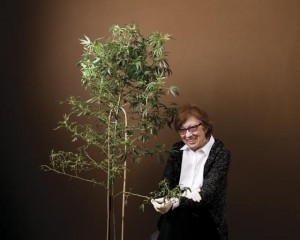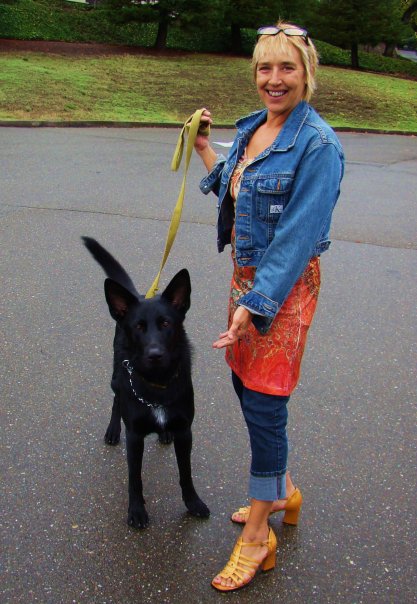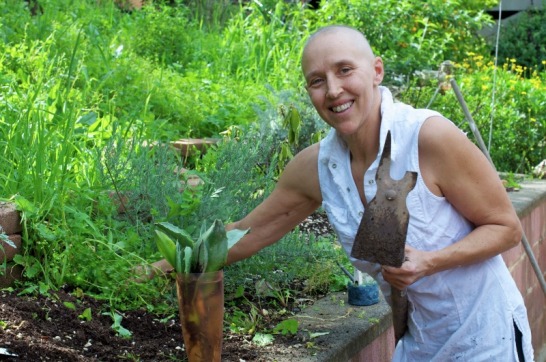
ICRS logo
7/7/2011 by Jahan Marcu – The annual International Cannabinoid Research Society (ICRS) meeting is taking place this week in Chicago. I’m here with over 250 researchers to take in 55 presentations on the subject of Cannabis and cannabinoids. This year I’m also honored to be presenting some of my recent work. The ICRS meeting is a unique and concentrated pool of cannabinoid science showcasing the latest breakthroughs.
The morning presentations on the opening day were devoted to the study of cannabinoids in learning and memory.
Indole derivatives such as WIN55212, a compound that is related to JWH-018, may disrupt learning and memory in a way that is much more distinct than THC.
The first talk was given via Skype with Dr. Robert Hampson from Wake Forest University in North Carolina. WIN55212 suppresses the encoding of new information but does not suppress memory recall. The research supports the role of cannabinoids in learning and memory, modulating the strength of neural encoding for long and short term storage. This research may help develop drugs for the treatment of PTSD or learning disabilities.
Next Marocoita Gilbert of East Carolina University gave a stunning presentation on the effects of cannabinoids on memory in birds (Finches). Birds and humans learn to communicate through vocal learning, imitating sounds of the parents. In birds the song can be passed down from parents to offspring. WIN55212 reduced the ability of birds to memorize songs, which was directly correlated with a down regulation in an important brain protein known as ARC. These finches tended to improvise the song! In a sense, the finches that were given a cannabinoid would preform jazz instead of classical.
Dr. Jerry Wright Jr. of Scripps Research Institute conducted a study on the effects of visual memory and learning in monkeys, using pure THC. The monkeys correct responses were affected by the number of stimuli given to the monkeys. Conceptually, if the monkeys were only doing one task, there was no difference. However, as the number of tasks increased, the monkeys incorrect responses increased. Interestingly, the psychomotor or coordination of monkeys was unaffected in raisin and pellet acquisition tests which required manual dexterity.
The research presentations then focused on pain and inflammation. In short, the following studies showed that Endocannabinoids such as PEA are effective in treating models of arthritis, pain, and inflammation.
Dr. Barbara Costa began by discussing that existing arthritis drugs are restricted to analgesics (pain management) with limited efficacy and lots of side effects. Cannabinoids may represent a reasonable approach to this chronic condition. PEA speeds recovery. Strong decreases could be found in inflammation, pain, and positive increase in peripheral nerves; where arthritis impairs movement. Dr. Costa suggested that endocannabinoids should be compared with a steroid; compared or co-applied with NSAIDS.
James Burton of the University of Nottingham showed that PEA was also able to inhibit immune cell migration, a hallmark of tissue damage and inflammation. Sharleen Yuan from the University of South Dakota complimented the pain research by showing data that outlined the mechanisms modulating EC signaling in neurons.
Ending the first symposium of the ICRS conference, Aron Lichtman from Virginia Commonwealth University shared research on a new drug, JZL184 which shares many properties of THC without motor skill effects.
The second session focused on the effects of cannabinoids on the gut and intestinal disease.
Poly unsaturated fatty acids (PUFAs) are precursors to many important biological factors. Amino acids are thought to form conjugations with fatty acids to mediate important events related to neuro-transmission. Dr. Kitty Verhoeckx shared her team’s discovery of fatty acid serotonins which were able to inhibit the FAAH enzyme, which raises the levels of endocannabinoids in the body. The research studied the effect of various combinations of oils (fish, sunflower) on the metabolism of these N-Acyl serotonins in animals. The production of fatty acid seratonins was directly related to diet.
Erin Rock from the University of Guekph presented research on Cannabidiol (CBD). CBD is usually the second most adundant cannabinoid on the Cannabis plant. CBD does not appear to activate the cannabinoid receptors, CB1 or CB2. Instead CBD appears to interact with serotonin receptors (5HT-1A) to reduce nausea and vomiting. CBD may be an effective anti-nausea and anti-vomiting drugs for cancer patients.
Steven Kinsey of the Virginia Commonwealth University showed that THC could block the formation of gastric hemmorages. Additonally, the protective effect of THC was mimicked by raising endocannabinoids through FAAH inhibition. FAAH is the enzyme that breakdown endocannabinoids. JZL184 knocked down and almost completely blocked hemorrhages, but tolerance developed after 6 days, if larger doses are administered chronically.
Dr. Alhouayek from the University of Louvain shared her work on inflammatory bowl disease (IBD) and cannabinoids. IBD occurs in about 10,000 people a year in developed countries. The root causes of IBD are unknown and a curative therapy remains elusive. Activating CB receptors is protective while blocking the receptors makes Colitis or IBD much worse. AEA is known for its protective effect but little is known about the effectiveness of 2-AG. Mice with IBD were effectively treated by raising the body’s own natural endocannabinoids, using synthetic compounds known as JZL184 and URB597. Colon tissue was shown to be protected by raising the levels of endocannabinoids. The protective effects were stopped by blocking by CB1 and CB2 receptors. CB1 and CB2 activity is important for a healthy colon. However, it was the elevated levels of the endocannabinoid 2-AG that were thought to be responsible for the beneficial effects.
The day ended with a flurry of cancer research highlighting the effectiveness of CBD to treat wide variety of cancers.
Members of Cristina Sanchez’s and Manuel Guzman’s labs from Spain discussed mechanisms of cancers, demonstrating the role of CB2 and GPR55 in cancer pathogenesis.
Dr. Alessia Ligresti from the Italian Endocannabinoid Research Group looked at 12 different plant cannabinoids and found that CBD was a potent anti-cancer agent against prostate cancer.
Dr. Sean McAllister from the California Pacific Medical Center demonstrated the effectiveness of CBD to treat aggressive cancer cells that were removed from cancer patients.
Lastly, Gabriella Aviello from the University of Naples showed how CBD may prevent or treat colon cancer, one most common and deadliest forms of cancer in the western world.
CBD was the star of the show on opening day here at ICRS, demonstrating potent anti-cancer effects in a variety of cancer types. CBD shows great promise, and may be used in an upcoming clinical trial with breast cancer, organized in part by Dr. Sean McAllister.
 Jahan Marcu is currently investigating the pharmacology of cannabinoid receptors. He was working at the California Pacific Medical Center Research Institute when exciting discoveries were made showing enhanced anti-cancer effects with THC and CBD from the Cannabis plant. The findings were published in the Journal of Molecular Cancer Therapeutics. In 2009 he received the Billy Martin Award from the International Cannabinoid Research Society (ICRS). Jahan is currently the vice-chair the Medical and Scientific Advisory Board at Americans for Safe Access (ASA). Questions? Contact [email protected]
Jahan Marcu is currently investigating the pharmacology of cannabinoid receptors. He was working at the California Pacific Medical Center Research Institute when exciting discoveries were made showing enhanced anti-cancer effects with THC and CBD from the Cannabis plant. The findings were published in the Journal of Molecular Cancer Therapeutics. In 2009 he received the Billy Martin Award from the International Cannabinoid Research Society (ICRS). Jahan is currently the vice-chair the Medical and Scientific Advisory Board at Americans for Safe Access (ASA). Questions? Contact [email protected]
DISCLAIMER: The views and opinions expressed are those of the author and do not necessarily represent any University, business or affiliates. While the information provided in this blog is from published scientific studies it is not intended to diagnose or treat any disease.
 Chris Goldstein is a respected marijuana reform advocate. As a writer and radio broadcaster he has been covering cannabis news for over a decade. He volunteers with local groups to change prohibition laws including PhillyNORML and The Coalition for Medical Marijuana New Jersey.
Chris Goldstein is a respected marijuana reform advocate. As a writer and radio broadcaster he has been covering cannabis news for over a decade. He volunteers with local groups to change prohibition laws including PhillyNORML and The Coalition for Medical Marijuana New Jersey.